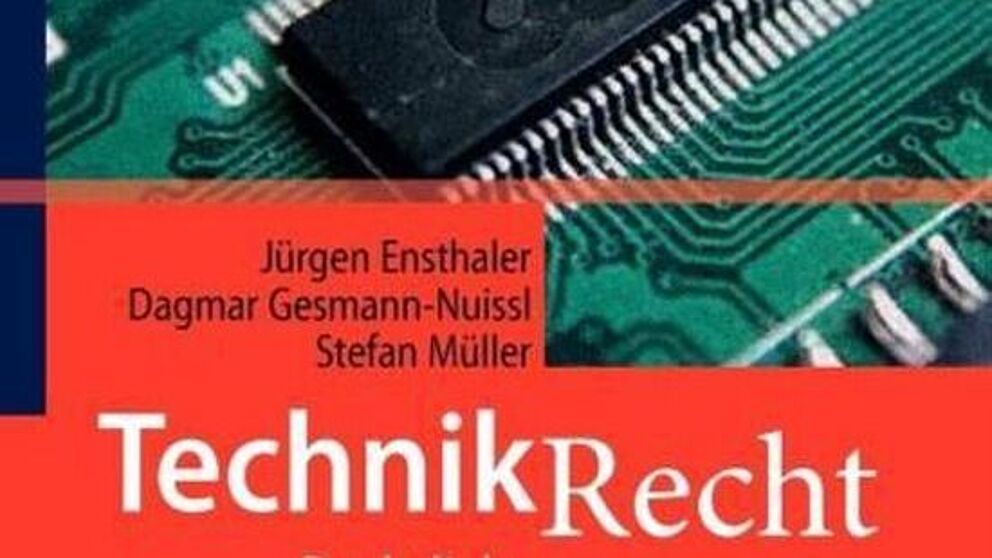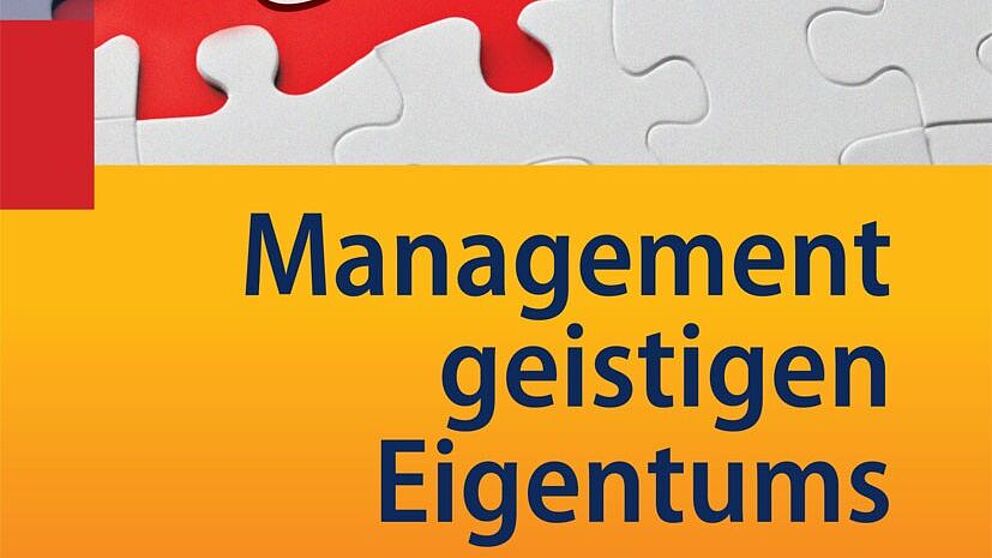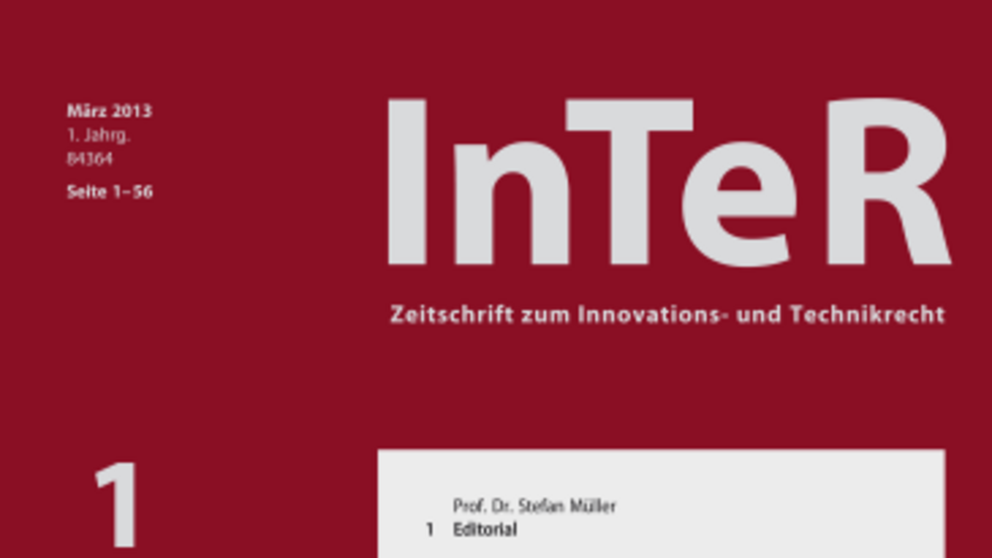Research at the Chair of Business Law, in particular Innovation and Technology Law
The professorship's research and teaching focuses primarily on innovation law and technology law (Technikrecht), two fields that are based on interdisciplinarity between engineering, economics and law and are in constant development. Innovation law deals with topics of innovation control through law and in law. Technology and engineering law focuses on the control of technologies and engineering by means of legal instruments.
Publications
Research projects
Kollaborations- und Lern-Umgebung für die wertorientierte Geschäftsmodell-Generierung (KLUG)
Prozesse mit Künstlicher Intelligenz überwachen, Maschinen mit maschinellem Lernen kontinuierlich verbessern oder Wartungen in Augmented Reality unterstützen – digitale Technologien versprechen großes Geschäftspotenzial für Unternehmen. In einer zunehmend digitalisierten Welt sind neue, digitale Geschäftsmodelle nicht mehr wegzudenken. Aber wie schaffen Unternehmen den Einstieg, die sich bislang über ihre Kompetenz im Maschinen- und Anlagenbau definieren? Die erfolgreiche Umsetzung und Integration in Unternehmen stellt nach wie vor eine enorme Herausforderung dar. Der Erfolg liegt nicht mehr allein in der Herstellung eines Produktes, sondern in der effizienten Interaktion zwischen Anbieter und Nutzer. Unternehmen müssen nicht nur in digitale Technologien investieren, sondern vor allem Kompetenzen für den gesamten Produktlebenszyklus aufbauen. Technologien und Kompetenzen strategisch und vernetzt aufzubauen – für dieses Ziel wird das Projekt KLUG neue Lösungen liefern. Das vom Bundesministerium für Bildung und Forschung (BMBF) geförderte Verbundprojekt strebt eine „Kollaborations- und Lern-Umgebung für die wertorientierte Geschäftsmodell-Generierung“ an, um kleine und mittlere Unternehmen zur selbstständigen Gestaltung und Etablierung digitaler Geschäftsmodelle zu befähigen. Die Universität Paderborn arbeitet dazu als Verbundkoordinator mit Schlüsseltechnologie-Partnern, Bildungspartnern und Anwendungspartnern zusammen. Das Projekt ist im Januar 2024 gestartet und umfasst ein Projektvolumen in Höhe von rund 3,7 Millionen Euro für die Dauer von drei Jahren.
Die Professur für Wirtschaftsrecht der Universität Paderborn sichert die Projektergebnisse durch die Entwicklung eines Ratgebers zum rechtskonformen Daten- und Technologiemanagement ab.
Mehr zum KLUG-Projekt finden Sie unter:
New research project "Enhanced Concept Maps" for the visualisation of legal content and structures
The legal system in Germany represents a system of normative guidelines and judgements. Laws represent abstract-generic regulations and the characteristics of one regulation are often related to others. This requires teachers to structure and prepare the subject matter in a didactically meaningful way. Nevertheless, the transfer of legal knowledge is traditionally text-based. As a text-oriented discipline characterised by an ambiguous technical language, law is not only image-shy, visualisations of legal content are also regularly considered to be unscientific means of expression. It is precisely this rejection of the use of multimedia content that presents the heterogeneous student body with major challenges and leads to obstacles to learning.
By developing a three-dimensional map as a digital tool, the text-heavy learning material should not only be reduced didactically, but the heterogeneous student body can also be encouraged by opening up a multidimensional perspective and making learning more sustainable. The digital map is built on a variety of possible networked paths. In addition to purely hierarchical and consecutive connected structures, it also offers further logical links such as causal relationships in the sense of cause and effect or prerequisite and legal consequence. Learners can use the programmed three-dimensional learning environment to arrive at a common, legally correct understanding of a legal issue.
Legal norms, structures and concepts are extracted from the existing and varied study material of the assessment module "W1601 Fundamentals of Private Commercial Law" and then implemented in the digital tool to be developed. In the project or special module "W2690 Methods of Private Business Law", which will be offered in the coming winter semester 2021/2022, students in the profiling phase of the Faculty of Business Administration and Economics can participate in the tool development as a "control group" and test the respective prototypes in various development phases for functionality and user-friendliness. In addition, the project offers potential for related final theses in various subject areas.
Since learning success is at the centre of the evaluation as an important challenge of quality management efforts, the digital learning tool is to be substantiated in the subsequent phase in terms of evaluation economics and research methodology (reliability and validity) by testing and use in the module "W1601 Fundamentals of Private Commercial Law". After completion in 2022, students will have another digital learning tool from Paderborn University at their disposal.
The project was awarded the 2020 prize for innovation and quality in teaching. The funding period began in May 2021 and will initially run until May 2022. The project team consists of Prof. Dr. jur. Stefan Müller, Christopher Günther, Christopher Pietsch, Philipp Delker, Achal Ramanath Poonja and Sumit Shekhar.



